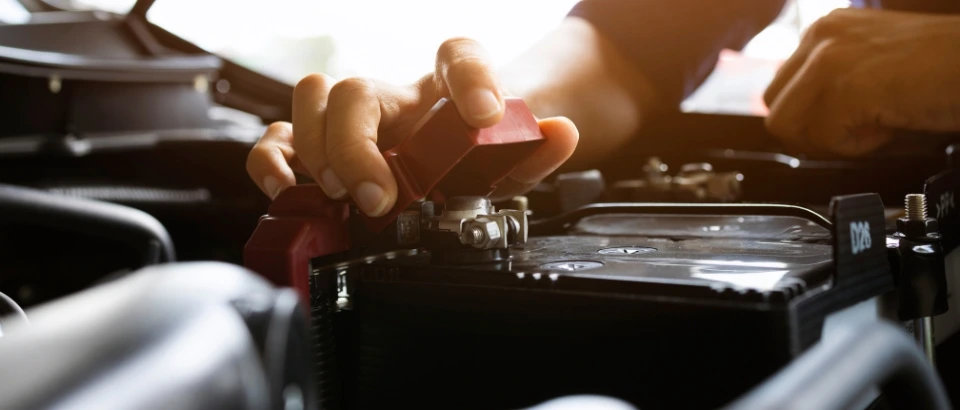The Hidden Dangers of a Swollen Car Battery
Regular vehicle maintenance often overlooks car batteries. They typically go unnoticed by most drivers until the car won’t start. A swollen battery is one of the most alarming yet misunderstood issues. At first, it may not seem serious, but a swollen battery clearly indicates that something is wrong inside your car’s electrical system. This article discusses the less obvious dangers of a swollen car battery and what to do if you notice one.
What Is a Swollen Battery?
A swollen car battery is exactly what it sounds like. The battery casing becomes bloated or misshapen. You might notice that the sides are puffed out or that the top is lifting. This occurs when gases build up inside the battery as a result of chemical reactions. Batteries are normally sealed to contain gases and fluids; however, when normal operation is disrupted, pressure builds up and the outer casing can expand.
Causes of Battery Swelling
Overcharging
One of the most common reasons for battery swelling is overcharging. If a battery can’t handle the amount of electricity delivered by a charger or alternator, it generates heat. The heat causes the electrolyte inside to release gas, which becomes trapped in the casing. Eventually, the battery expands under the pressure.
High Temperatures
The battery is exposed to extreme heat if your car sits in the sun for long periods or operates in very hot climates. Heat speeds up the chemical reactions inside the battery. These reactions produce gases which, if not vented properly, cause the battery to swell.
Defective Charging System
A faulty alternator or voltage regulator may send uncontrolled power to the battery. If the voltage is too high or fluctuates, the battery may overcharge or overheat, causing swelling and other internal damage.
Old or Damaged Batteries
Batteries wear out over time. If your battery is more than three years old or has already begun to deteriorate, it may start to fail internally. Swelling occurs when components break down and abnormal chemical activity takes place. The risk is further increased by physical damage, such as a drop or crack.
The Dangers of a Swollen Battery
Fire Risk
Gas builds up inside a swollen battery due to chemical reactions. These gases are flammable. The battery can catch fire if it continues to heat up or suffers a short circuit. In rare but real situations, the battery can even explode. Such a fire spreads quickly and can cause significant harm to you, your car, and anyone nearby.
Chemical Leaks
A swollen battery is more likely to develop cracks or leaks. Sulfuric acid, which is extremely corrosive, is present in car batteries. Even if it does not directly leak onto an engine component, wire, or paint, it can permanently damage those items. This acid can also harm your eyes, skin, and lungs.
Electrical Malfunctions
Swollen batteries do not consistently provide stable power. This inconsistency can affect your car’s ability to start or cause electronics to fail while driving. Moreover, the engine control unit—the brain of the car—can be affected. Unstable voltage may lead to system errors or damage sensitive electronic parts.
Injury Risk
Batteries are hazardous to handle when swollen. Without gloves and eye protection, attempting to remove the battery could result in acid burns, chemical exposure, or inhalation of caustic vapors. If tampered with, the pressure inside may cause the casing to rupture, leading to injury.
What to Do If Your Battery Is Swollen
If you suspect that your battery is swollen, do not panic; take action quickly.
Turn Off the Engine
The first step is to turn off the engine and stop using the vehicle. Driving with a swollen battery only increases the risk of fire or explosion.
Do Not Touch It
Avoid touching or removing the battery unless you are properly trained and using the correct safety equipment. Disturbing it may cause acid to leak or the casing to rupture.
Call for Assistance
Contact a professional mechanic or roadside assistance immediately. Professionals have the proper tools and protective gear to safely handle and replace a swollen battery.
Replace the Battery
If the swollen battery is removed, replace it with a new battery of the correct size for your vehicle. Do not attempt to reuse or recharge a swollen battery.
How to Prevent Battery Swelling?
You can reduce the chances of battery swelling by following a few practical steps.
Use the Right Charger
Always use an external charger that is compatible with your battery. Avoid chargers that are cheap or unregulated, as they may deliver too much voltage.
Monitor Heat Exposure
Whenever possible, park your car in a shaded area or garage. In very hot climates, protecting your battery from excess heat is essential.
Maintain Your Charging System
During regular service, have your alternator and voltage regulator checked. This helps ensure that your battery is not being overcharged.
Replace Batteries on Time
Batteries usually last between three to five years. Do not wait until it dies. Avoid surprise failures by replacing the battery when it is nearing the end of its lifespan.
Final Thoughts
A swollen car battery is a serious warning sign. It indicates that there is an issue with your battery or charging system. If left unattended, it can lead to dangerous outcomes such as fire, acid leaks, and electrical failure. Regular inspections, timely replacements, and proper handling are essential to ensure your vehicle’s safety.
Pay attention to changes in your car’s performance. If you notice odd smells, difficulty starting, or bulging around the battery, act immediately. A small effort today can prevent major problems tomorrow.
At Swift Battery Specialist, we provide expert car battery services across Singapore—available 24/7. If you suspect a swollen battery or need a replacement, contact us immediately for fast, reliable, and safe assistance.











